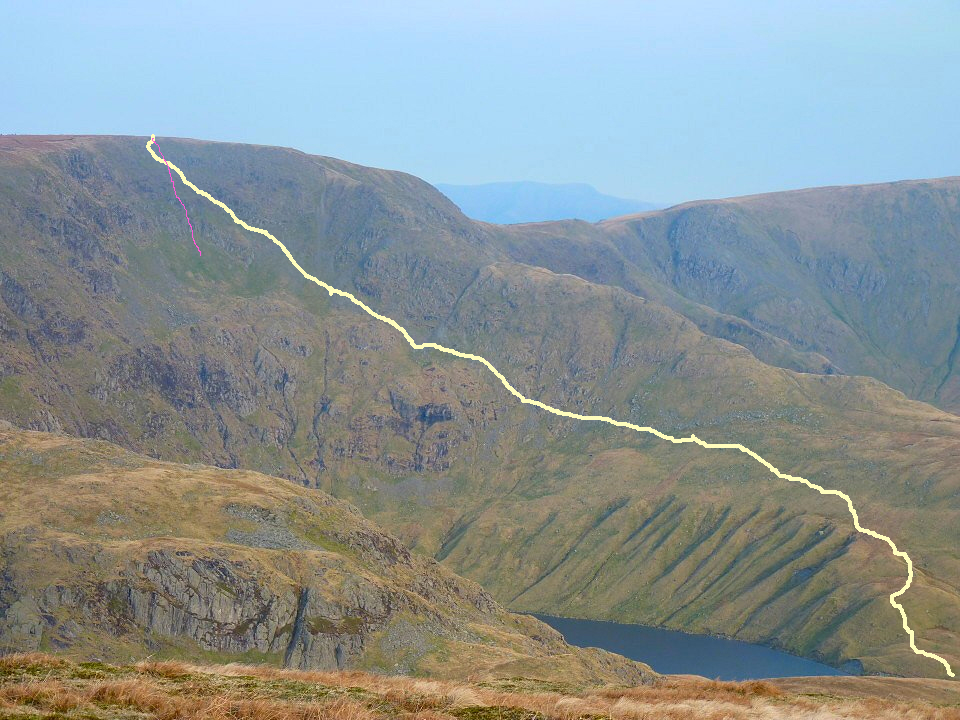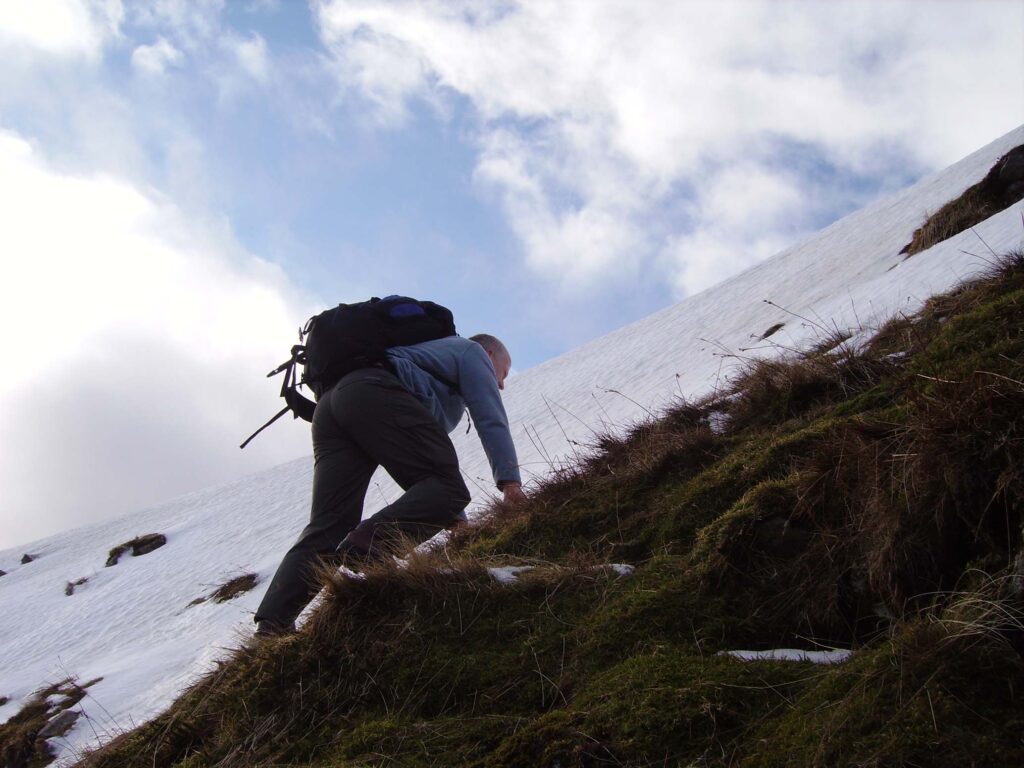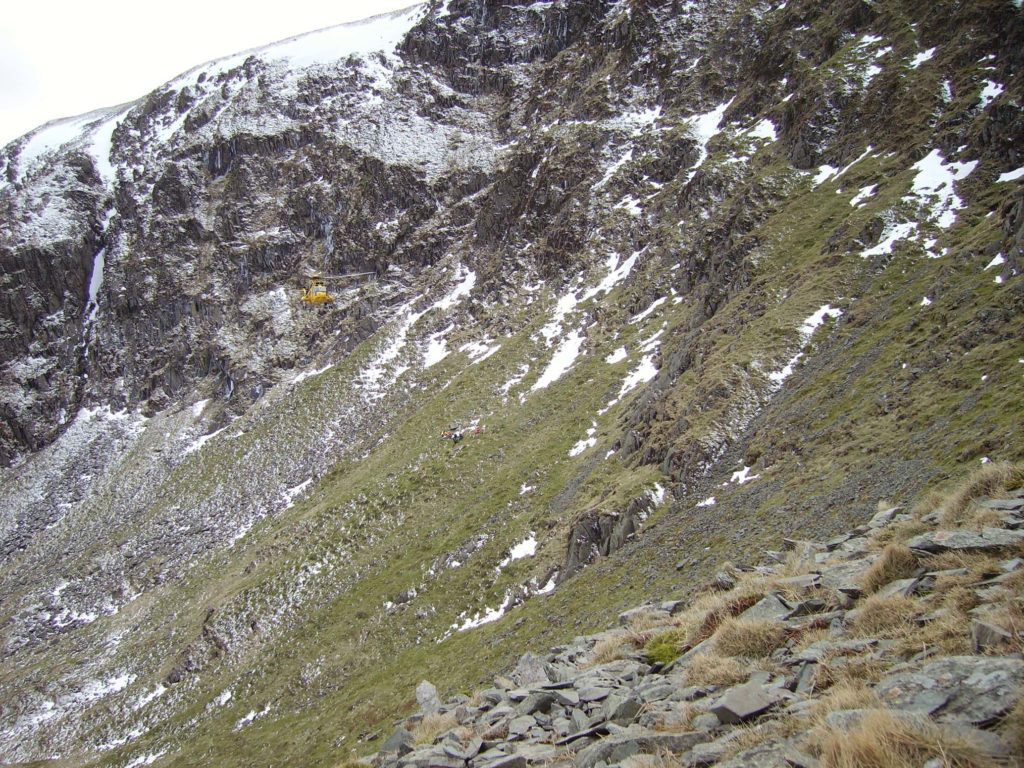Warning: this post contains details of the nature of the accident that killed my father, including a summary of the post-mortem report and photographs which, while not graphic, may be evocative.
Last week, I attended a coroner’s inquest, which (finally) took place following my father’s sudden death earlier this year. It’s been five months since he fell to his death in the Lake District, while he was training for a sponsored trek to the North Pole this spring. Despite the completion of the post-mortem only a week or so after his death and the police investigation not running on too much longer after that, it took a long time before the coroner was ready to set a date for an inquest hearing and finally put the matter to rest.

I made my way up to Kendal – presumably chosen for its proximity to the coroner who serves the hospital where my father was airlifted after his fall – in a rental car, picking up my sisters and my mother in Preston on the way. We were joined at the County Hall by my dad’s friend John (who was with him on the day of the accident), Kate (a partner of my dad’s), and – after his complicated train journey finally got him there – Stephen (one of my dad’s brothers).
Mostly, the inquest went as I’d anticipated it might. The post-mortem report was read out – the final verdict was that death was primarily caused by a compression fracture in the upper spine and a fracture of the base of the skull, which is a reassuringly quick and painless way to go, as far as falling injuries are concerned. John’s statement was summarised, and he was asked a series of clarifying questions in order to ensure that my dad was properly equipped and experienced, in good health etc. on the day of his accident.

This was clearly a painful but sadly-necessary ordeal for John, who’d already been through so much. In answer to the questions, he talked about how he and my dad had rambled together for years, about how they came to be where they were on that day, and about the conditions and the equipment they’d taken. And, in the minutes leading up to my dad’s death, how he’d been coincidentally taking photographs – including the one below. He’d been in the process of putting his camera away when my dad slipped, so he didn’t see exactly what happened, but he looked up as my dad shouted out to him, “John!”, before he slid over the cliff edge.
Later, we heard from the police constable who was despatched to the scene. The constable had originally been en route to the scene of a minor road crash when he was diverted to my dad’s accident. He related how the two helicopter teams (the Air Ambulance hadn’t been able to touch down, but paramedics had been able to leap out at low altitude, so an RAF Search & Rescue helicopter was eventually used to transport the body to the hospital) had worked on the scene, and about his investigation – which had included seizing John’s digital camera and interviewing him and the other ramblers who’d been at the scene.

That’s all very sad, but all pretty-much “as expected”. But then things took a turn for the unexpected when Kate introduced herself as a surprise witness. Making an affirmation and taking the stand, she related how she felt that my father’s walking boots were not in adequate state, and how she’d told him about this on several previous occasions (she’s now said this on her website, too).
I’m not sure what this was supposed to add to the hearing. I suppose that, were it not for the mitigating factors of everything else, it might have ultimately contributed towards a possible verdict of “death by misadventure” rather than “accidental death”: the subtle difference here would have affected any life insurance that he might have had (he didn’t), by giving a reason to reject a claim (“he wasn’t properly-equipped”). John’s statement, as well as subsequent examination of my dad’s boots by my sister Sarah, contradicted Kate’s claim, so… what the hell was that all about?

We all handle grief in different ways, and its my hypothesis that this was part of hers. Being able to stand in front of a court and describe herself as “Peter’s partner” (as if she were the only or even the most-significant one), and framing his death as something for which she feels a responsibility (in an “if only he’d listened to me about his boots!” way)… these aren’t malicious acts. She wasn’t trying to get an incorrect verdict nor trying to waste the courts’ time. This is just another strange way of dealing with grief (and damn, I’ve seen enough of those, this year).
But I’d be lying if it didn’t cause quite a bit of concern and confusion among my family when she first stood up and said that she had a statement to make.
Anyway: regardless of that confusing little diversion, it’s good that we’ve finally been able to get the coroners’ inquest to take place. At long last – five months after my dad’s death – we can get a proper death certificate I (as an executor of his will) can start mopping up some of the more-complicated parts of his estate.